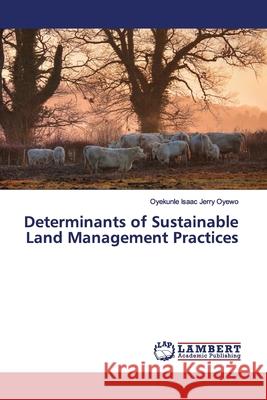Determinants of Sustainable Land Management Practices » książka
Determinants of Sustainable Land Management Practices
ISBN-13: 9786139444113 / Angielski / Miękka / 2019 / 100 str.
Agricultural sustainability, food security and unsustainable land management practices have been a major problem among Nigerian farmers. Poor incentives for land resource conservation, among other socio-economic problems, have subjected the soil nutrients to serious exploitation and depletion. Past researches on land management had not examined the indicators of sustainable land management practices. Therefore, this study examined determinants of sustainable land management practices among small holder cassava farmers in Oyo State Nigeria. Multistage sampling technique was used to select 176 cassava farmers from the four agricultural zones of Oyo State. Primary data obtained by the use of a well structured questionnaire were analysed by descriptive statistics such as frequency counts, percentages and means, multiple and tobit regressions as well as fuzzy logic. The result revealed that average age, farm size used, household size, cassava output and farming experience of the farmers was 50.15 years, 2.89 hectare, 6.30, 37.50 tons and 13.4 years respectively, male farmers constitute 73.9%, 80.7% were married, majority (87.5%) had farm size of between 0.5-5.0 hectares.











